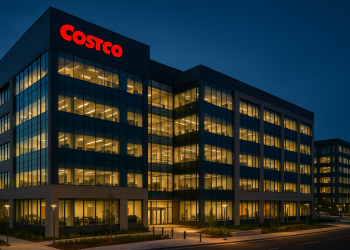No products in the cart.
The Interplay of Growth and Fulfillment in Careers
Learn how to align your professional growth with personal fulfillment, ensuring a meaningful career that resonates with your values.
Seattle, USA — The modern workforce is in a state of flux, where traditional career paths often intertwine with the quest for personal fulfillment. As the world grapples with rapid changes in technology and workplace dynamics, young professionals are prioritizing not just growth but also the significance of that growth in their lives. The question looms: How do we cultivate a career that not only escalates our professional trajectory but also enriches our personal satisfaction?
For many, the pursuit of a fulfilling career is akin to navigating a labyrinth. It requires skills, persistence, and, most importantly, the courage to align one’s values with professional aspirations. A recent study from Gallup revealed that only 34% of U.S. employees feel engaged at work, highlighting a critical disconnect between job satisfaction and professional growth [1]. This statistic serves as a wake-up call, urging individuals to reevaluate what fulfillment means in their careers.
The concept of growth-fulfillment integration invites us to explore the intersection between personal values and career trajectories. Imagine a young software engineer, Sarah, who initially chose her career for its financial rewards. Yet, as she delved deeper into the field, she found herself yearning for something more. It was not enough to code the next big app; she wanted her work to impact the world positively. After some introspection, Sarah pivoted to a role focused on developing educational technology for underprivileged schools. Her work now brings her not just a paycheck, but a profound sense of purpose.
The concept of growth-fulfillment integration invites us to explore the intersection between personal values and career trajectories.
Such stories are not unique. Many professionals are rethinking their career paths, seeking roles that resonate with their personal mission. This shift is echoed in the rise of purpose-driven careers, where individuals strive to integrate their passions with their professional lives. According to Deloitte’s 2023 Global Human Capital Trends report, 79% of employees would prefer to work for companies that prioritize purpose over profit [2]. This statistic underscores the growing demand for organizations to foster environments where employees can thrive both professionally and personally.
However, achieving this balance is not without its challenges. The corporate world often prioritizes metrics and performance over emotional well-being. Many young professionals feel the pressure to conform to traditional success metrics—climbing the corporate ladder, achieving promotions, and increasing their salaries—while their deeper aspirations remain unaddressed.
Critics argue that this focus on fulfillment could lead to unrealistic expectations. After all, work isn’t always about passion; it can be about survival. Yet, proponents counter that a lack of fulfillment can lead to burnout, high turnover rates, and ultimately a loss of talent. The answer lies in fostering a culture where both performance and personal satisfaction are valued equally.
Organizations that recognize this need are already reaping the benefits. Companies like Google and Patagonia, known for their employee-first policies, have seen enhanced innovation and retention rates. These firms understand that when employees feel fulfilled, they are more engaged, productive, and willing to go the extra mile.
As we look to the future, the integration of growth and fulfillment will likely redefine career landscapes. Emerging trends point to the increasing importance of emotional intelligence and soft skills in the workplace. A recent LinkedIn report highlighted that 92% of talent professionals believe soft skills are just as important as technical skills [3]. This shift suggests that employers are beginning to value the human element in their workforce, acknowledging that a fulfilled employee is a productive employee.
Moreover, the gig economy is reshaping how we perceive work. The flexibility it offers allows individuals to pursue side projects that align with their passions while maintaining a primary job. This model not only provides financial stability but also enhances personal fulfillment. Young professionals today are more willing to explore unconventional career paths, blending their interests with their professional lives. The result? A more diverse and satisfied workforce.
As we look to the future, the integration of growth and fulfillment will likely redefine career landscapes.
To navigate this evolving terrain, professionals must take proactive steps. Self-reflection is key; understanding one’s values, passions, and long-term goals can illuminate the path toward a fulfilling career. Networking with mentors and peers can also provide valuable insights and guidance. Ultimately, it’s about creating a career that resonates with who you are, not just what you do.
As we move forward, the challenge will be to foster a culture that embraces both growth and fulfillment—a culture where success is defined not solely by profit margins but by the satisfaction and well-being of its workforce. The future of work lies in this delicate balance, reminding us that the journey of professional growth is not merely about climbing the ladder but finding joy and purpose in every step.












